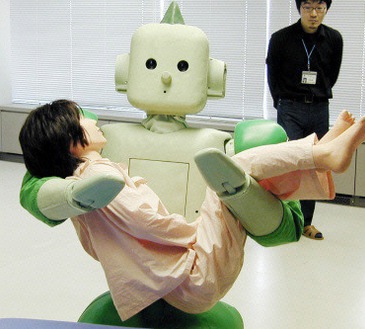plenary and the technology of language
So right now I’m sitting on the floor of the gym at Plenary, not really listening to what’s going on (sorry SGA!). Part of the reason that I’m bored out of my mind is because almost all of the 7 resolutions have to do with grammatical/semantic amendments to the consititution and various other official documents. As i’m sitting here pondering why anyone would schedule a huge campus-wide meeting for 10am on a Sunday morning, for the sole purpose of discussing semantics, I had a thought. About language. The technology of language, to be precise. It would appear, from this Spring’s plenary at least, that language and wording hold great significance in the way that we live, as individuals, communities and a society. This became especially obvious to me when we were discussing the first resolution, which wanted to make the SGA consitution gender neutral. The writers of the resolution were very adamant about ensuring fellow Mawrters that their purpose was not to undermine the fact that Bryn Mawr is a women’s institution, but instead to make the constitution more inclusive of non-female identifying individuals (this included trans students, Haverford students and Post-Baccs).
In class, we’ve discussed the ways in which various technologies, be they ‘physical’ (i.e. machinery, DNA etc) or more intangible (e.g. the economy), gender society. However, we’ve never really touched upon the technology of language, and how it is used to define and gender the world in which we live. We’ve talked about categories and labeling, their uses, usefulness, and implications, but we’ve never discussed how these categories, the actual words used to categorize, are constructed/chosen. The history of language and the creation and appropriation of words and their meanings can provide incredible insight into the cultures that utilize the language.
One example that I can think of is something that a professor of one my classes last semester told the class. The class was about Third World Feminisms and our professor told us that the definition for the word ‘maid’ in a Greek dictionary was ‘Filipina’. She then pushed us to think about the implications of this (the global commodification of Filipina women as maids and domestic workers) and the history of colonization involved behind it (the Philippines was, for the most part, a colonized nation until 1946). Another sort of example that I discovered while I was browsing Amazon for possible books to read in this course, was the phrase “gender changer”. This, apparently, is the name for one of these things:

I’m guesing that the reason it’s called that is because it switches the ‘male’ (the part with little wire things sticking out of it), into a female (the part with the little holes). They interlock – clearly a reference to male/female sexual intercourse. Anyways, I just find the whole thing kind of interesting, because it’s an example of how the technology of language genders the physical technology that we use everyday. Another obvious example would of course be ‘motherboard’, ‘mothership’… Can you think of anymore examples? There must be thousands…
Comments are closed.

I am really glad that you brought up the resolution from Plenary. I agree that the ‘technologies of language’ has not been discussed enough, and it is true, words do have gender. Gender-neutrality has been constantly scrutinized in lots of text. To avoid gender-bias, writers have started to use “they/their, the person/reader,” or “he” and “she” an equal amount of times in novels, articles, textbooks, etc. Sometimes, gender-neutrality is associated with political-correctness. Words like “manpower” and “chairman” are sometimes believed to equate “-man” with “-human.” But now I feel like we have to constantly make sure we are saying “freshwoman” instead of “freshman” or “waiter” or “waitress” rather than just keeping words gender-neutral. The resolution passed today and it seems like, though we do go to a women’s college, gender is transformative and the words used to describe us as students should be neutral too. Thanks to those who presented the resolution!
Yes, thanks for bringing this up, the resolution seems to have everything to do with what we’ve been talking about. Since being in this class and other gender classes here, I knew exactly why I wanted to vote for it. Even though I really sympathize with people who, like a friend at bmc, prefer to preserve this women’s college as a small pocket of space where (unlike pretty much the rest of the entire world) we refreshingly use ‘she’ INSTEAD of ‘he’, I supported the resolution because I don’t think it’s important to maintain the binary between male and female.
Your bringing up how language is a technology of gender reminds me of reading for another class, Eve Sedgwick, and her explanation of how ‘homosexuality’ and ‘heterosexuality’ are, basically, totally made up in the past 150 years in Western society. She questions why, of all the many many characteristics by which we could define our sexuality, it’s one arbitrary characteristic–‘genital sex of object choice’–that defines sexuality, and thus the word ‘homosexual’. Linguistically, adding ‘homo’ to ‘sexual’ could denote any sameness in the context of sex, e.g. that a person with brown hair is only attracted to other people with brown hair. Definitely language shapes our ideas of what’s normal or not.
I’m glad you brought this up as well and I personally never thought of this as an issue until, of course, it was brought up in plenary and in many other discussion on campus. I too will like to have more discussions on the technology of language because I feel that these words impact many lives. I also feel like it can be difficult to keep words gender neutral just because they have been programmed into our heads for so long.
Ah the gender changers. Also, there are promiscuous networks. Is that gendered? I think about language a lot. Words do matter.